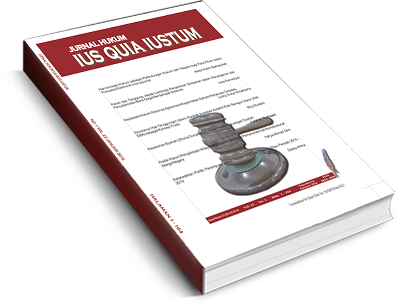Main Article Content
Abstract
This research is to analyze the role of DPS (Dewan Pengawas Syariah or Sharia Supervisory Board) towards the practice of sharia obedience with the perspective of customer protection in sharia banking in Indonesia. This research adopted the analysis method based upon the doctrinal content by applying four types of legal approach including: (i) history; (ii) Fiqh/philosophy; (iii) comparison and (iv) analysis and critical. In addition, the approach alignment is also needed for the legislative alignment with Islamic philosophy and customer protection philosophy. The result of the research concluded that any violation in sharia obedience neglected by DPS will negatively impact the image and credibility of sharia banking to public; thus, it can bring an impact on the public trust. For this reason, the roles of DPS in sharia banking needs to be optimized, for instance related to the qualification of DPS appointment must be tighter and the support to its roles must be realized in sharia banking. DSN MUI as an institution issuing the fatwa (binding ruling) can make the coordination and equalize the perception with the DPS posted in sharia banks in Indonesia in supervising the operation of sharia bank to make it really playing a role and ready to run its task as the DPS.
Keywords
Article Details
Authors who publish with this journal agree to the following terms:
a. Authors retain copyright and grant the journal right of first publication with the work simultaneously licensed under a Creative Commons Attribution License that allows others to share the work with an acknowledgement of the work's authorship and initial publication in this journal.
b. Authors are able to enter into separate, additional contractual arrangements for the non-exclusive distribution of the journal's published version of the work (e.g., post it to an institutional repository or publish it in a book), with an acknowledgement of its initial publication in this journal.




